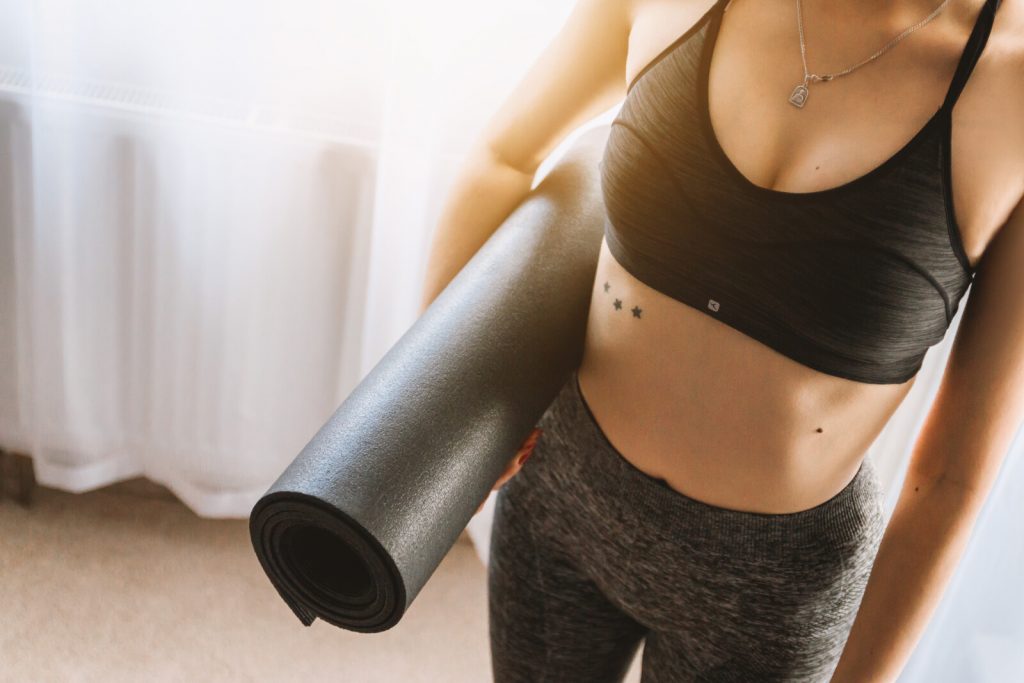Do you just envy those people who seem to have no problem drifting off almost as soon as their head hits the pillow? There’s nothing worse than tossing and turning for hours on end, eventually falling into a deep sleep about an hour before your alarm wakes you up, leaving you totally frustrated.
Personally, if I’ve had just one bad night, I’m absolutely like a bear with a sore head! Studies undertaken reveal as many as 40 million Americans suffer from over 70 varieties of sleep disorders, with 60 percent of adults reporting problems sleeping two or three nights a week, most of which go undiagnosed or untreated.
Do You Have Problems Sleeping?
It’s vitally important to get the correct amount of rest, and it’s advised that adults should have 7-9 hours of sleep per night. Missing out on one or two nights will leave you irritable and affect your ability to focus.
If this goes on for longer, your concentration levels become much worse, increasing your risk of accidents at home, in the workplace, and on the road, and a continuous lack of sleep could seriously affect your health, giving rise to negative health conditions such as obesity, heart disease, and diabetes.
If you’re currently feeling physically and mentally exhausted and desperately seeking ways to drift off into that deep, long-lasting slumber swiftly, you may find some of the following tips helpful.
TIMING
Your internal body clock plays an important role in your overall health and wellbeing. When it’s out of synchronization, it can cause serious sleeping problems. Try not to vary your bedtime routine too much and stick to a consistent sleeping and waking schedule.
This may prove to be difficult if you’re working shifts or have young children; however, it’s still important to try to maintain some sort of routine.
EXERCISE

Exercise boosts the production of serotonin and decreases levels of cortisol in the brain, which in turn will increase the length and quality of your sleep. Physical activity in the morning rather than later in the day has shown to be much more beneficial for sleep.
With that being said, strenuous exercise just before bedtime may keep you awake, so it’s important to finish your workout a few hours before retiring for the night.
A good way to relax your mind and body before sleep is to try some simple stretching exercises or yoga poses, there are many ‘before bed’ routines available on the internet, or you could just make up your own.
DAYLIGHT AND DARKNESS
Light also influences your internal body clock. Getting enough natural light, especially early in the day, is very important. Try introducing a morning walk into your daily routine.
Darkness promotes tiredness and increases the production of melatonin, a hormone essential for sleep. Making your bedroom dark with blackout curtains or a blind could help you sleep better.
TEMPERATURE
When you lie down to rest, your body begins to cool down. Check the temperature of your room, and if it’s too high, it could be preventing you from falling asleep.
Taking a hot bath or shower before bed can be helpful by speeding up your body’s temperature changes; when your body begins to cool afterward, it signals your brain to sleep.
Evidence has shown that adults who bathe or shower at temperatures between 104 °F–108.5 °F (40.0 °C–42.5 °C) 1 to 2 hours prior to going to bed benefit from improved sleep quality.
With a little trial and error, you should be able to find the perfect room temperature for you where you feel neither too hot nor cold but just right.
DIET

Be careful what you eat in the hours before you go to bed. Studies have shown that a diet high in carbohydrates such as rice, potatoes, and bread will help you to drop off quickly, but you’re not likely to have a long-lasting restful night.
Foods containing a high-fat content will send you into a deeper, much lengthier sleep. Try eating foods or snacks high in healthy fat, such as fish, avocado, nuts and seeds, eggs, and dark chocolate.
Try switching to a Paleo Diet. You may find this helps promote sleep and lower your body’s level of inflammation. It’s also been shown to improve insulin sensitivity, blood pressure, and cholesterol levels.
MUSIC
Try listening to some relaxing music when you hit the hay, as studies have shown that doing so promotes a deeper, more restful night’s sleep.
There are many sleep-inducing apps available that will play gentle music or sounds to help you drift off. Some of these also have the function of tracking your sleep patterns and giving you feedback to help you get a better night’s sleep overall.
COMFORT

This may sound obvious, but comfort is everything when it comes to getting that much-needed sleep, and your mattress and bedding play an important role.
If your mattress is old and lumpy, it may be time for an upgrade, as a good quality mattress will provide the support your body needs, helping to reduce tossing and turning throughout the night.
Your bedding should also be comfortable and breathable to allow your skin to breathe. Cotton is always a good choice as it’s a natural fabric.
It’s also been proven in studies that a medium-firm mattress will help with sleep disturbance and muscle discomfort. Try to choose good quality bedding and pillows, and make sure your choice of nightwear will keep you at the right temperature during the night.
REDUCE STRESS LEVELS
Studies show that 43 percent of people aged 13–64 have reported lying awake at night due to stress at least once in the past month. Relaxation and meditation 30 minutes before going to bed can help to reduce stress levels and promote of good night’s sleep.
Yoga is also a good way to reduce stress and promote relaxation, as it helps to stretch out your muscles, improves your circulation, and promotes deep breathing.
If you find it difficult to wind down at night, try writing down any worries or things that are on your mind, this will help to clear your head and allow you to forget about them until the morning.
DAYTIME NAPS
It may be difficult to break the habit, but taking regular naps during the day often leads to poor night-time sleep quality. Try not to sleep during the afternoons, and limit your morning naps to no longer than 30 minutes. This will help to ensure you’re feeling tired come bedtime.
Final Words
If you’ve simply tried every tip and trick in the book and you’re still not having any joy, then it may be time to seek the help of your health professional to find the specific cause or rule out any medical condition that could be treated before having to think about the need for prescription pills, especially if you are suffering from stress.
If left untreated, stress and lack of sleep can lead to long-term problems. Your doctor can advise on how and when to safely take any sleeping tablets should they be required as a last resort.
Table of Contents